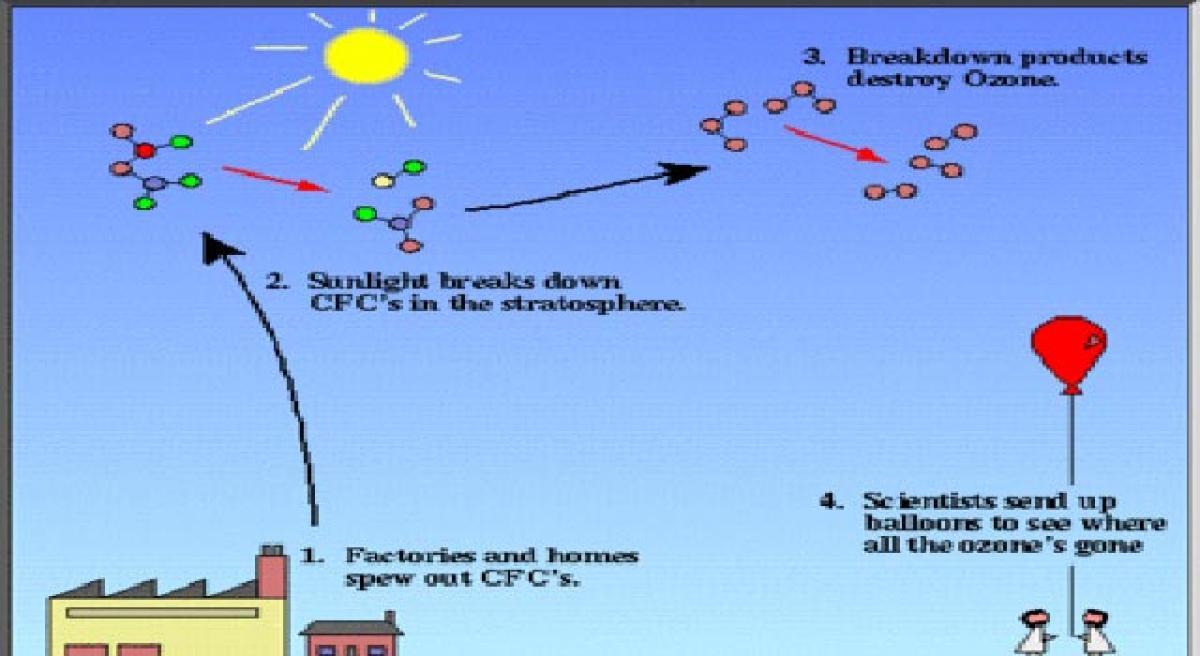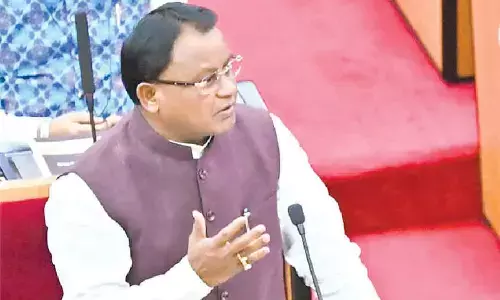HFC gas pact can’t meet high hopes?

A pact by almost 200 nations to slash greenhouse gases used in refrigerators and air conditioners will likely fall short of governments\' hopes of averting a full half-degree Celsius (0.9 Fahrenheit) of warming this century, scientists say.
Oslo : A pact by almost 200 nations to slash greenhouse gases used in refrigerators and air conditioners will likely fall short of governments' hopes of averting a full half-degree Celsius (0.9 Fahrenheit) of warming this century, scientists say. Saturday's agreement in Kigali, Rwanda, is the biggest single step to limit climate change since governments reached a global agreement in Paris last year to shift the world economy from fossil fuels this century.
Amid celebrations of the legally binding Kigali pact to phase down use of factory-made hydrofluorocarbons (HFCs), many governments and environmentalists said it could avert 0.5C of warming this century, citing a 2013 scientific study. Hydrofluorocarbons are any of a class of partly chlorinated and fluorinated hydrocarbons, used as an alternative to chlorofluorocarbons in foam production, refrigeration, and other processes.
But some leading researchers expect it will be less. Eager to declare a victory, governments glossed over many uncertainties about HFCs. Some more recent research indicates HFCs may be less powerful in trapping heat than once feared, said Michiel Schaeffer of Climate Analytics. "My guesstimate would be around 0.2 degree Celsius (0.36F) by 2100" of avoided warming, he said. Climate Analytics is one of four European research groups working together to project temperatures based on government pledges.
Their Climate Action Tracker indicates that government promises for cutting greenhouse gases - if all carried out and before accounting for the HFC agreement - would raise average temperatures by 2.7C (4.9F) over pre-industrial times by 2100. Half a degree would be a gigantic saving. Last year's Paris Agreement set an over-riding goal of limiting a rise in average temperatures to "well below" 2C (3.6F), ideally just 1.5C (2.7F), to avert more droughts, floods, rising sea levels and food and water shortages.
US Secretary of State John Kerry, whose government hopes to leave a strong legacy in fighting global warming, hailed the Kigali agreement as a "monumental" step forward. "It will give us the opportunity to reduce the warming of the planet by an entire half a degree centigrade," he said. Guus Velders, an author of the widely quoted 2013 study of HFCs and warming, said his calculations of the impact of the Kigali accord show HFCs are now likely to stoke only 0.06C (0.1F) of warming this century, down from a range of 0.3C to 0.5C with no action.
He said it was better to give ranges because of many uncertainties. Using one number means "it seems you know more than you do," said Velders, who works at the Dutch National Institute for Public Health and the Environment. The Rwanda pact sets varying dates for rich and poor nations to freeze and cut HFC use. The United States and the European Union are among those that already have laws phasing out HFCs, with manufacturers using less damaging chemicals in fridges and air conditioners and aerosols.
Andrew Jones of Climate Interactive, a US based think-tank that builds climate simulations with the Massachusetts Institute of Technology, said the HFC deal was crucial to combat global warming. "But it's in no way a silver bullet," he said, adding that his group would not lop as much as 0.5 degree off its existing projection that the Paris promises will lead to 3.5C of warming this century.
By Alister Doyle











